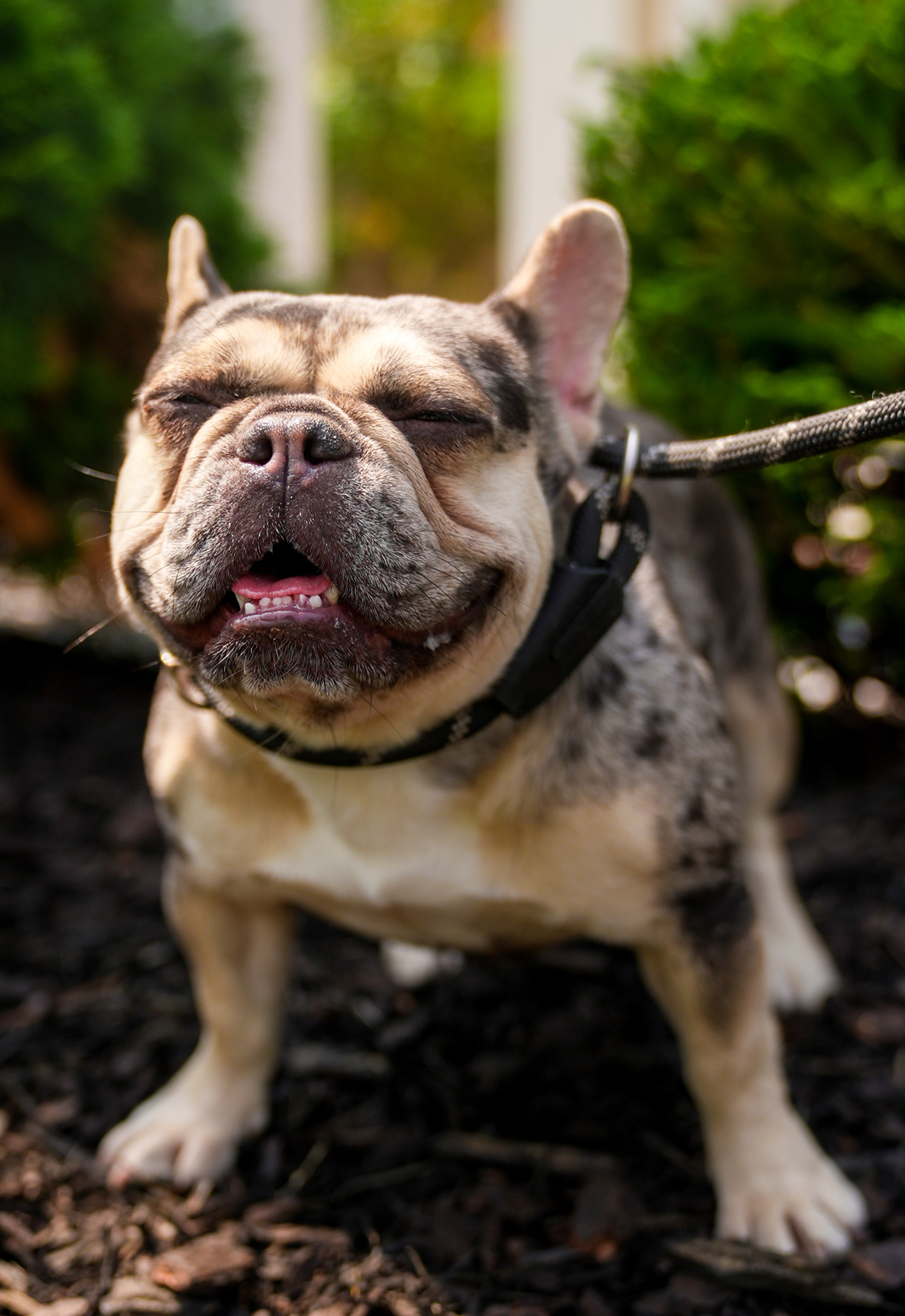English Bulldogs aren’t just expensive—they’re fragile.
Bad breeding doesn’t just cost you money. It costs dogs their health, their comfort, and their life span.
If you’re looking for an English Bulldog, there’s one truth you need to hear first:
Most breeders aren’t qualified.
Some cut corners. Some lie. Some know exactly what they’re doing—and just don’t care.
This guide gives you the red flags to watch for. Learn them, use them, and protect yourself from making the kind of mistake you can’t undo.
Why Finding the Right English Bulldog Breeder Matters
Breeding Bulldogs the right way is hard.
They’re a brachycephalic breed, which means they can’t breed or give birth naturally without assistance. Most need artificial insemination and C-sections. That’s just the start.
Done right, this process costs thousands.
Done wrong, it leads to genetic issues, surgical emergencies, lifelong suffering, or worse.
So when you see Bulldogs for sale “cheap,” or a breeder who seems too easy to deal with—that’s your first warning sign.
You’re not just buying a puppy.
You’re buying everything that happened before you ever met it.
Red Flag #1: No Health Testing or Genetic Screening
English Bulldogs are prone to serious medical problems:
- Brachycephalic airway syndrome (they struggle to breathe)
- Hip dysplasia
- Cherry eye
- Allergies and skin infections
- Heart and spinal issues
A responsible breeder knows this—and tests for it before breeding. Not after.
If they can’t show you paperwork from OFA or a vet-certified health check, walk away.
“Vet checked” isn’t enough. Ask for DNA screenings. Ask about specific conditions Bulldogs are known for. If they seem offended or vague, you have your answer.
Red Flag #2: Puppies Always Available
Dogs aren’t products.
A breeder with “puppies ready now” every month is overbreeding, period.
Responsible breeders plan litters, often months in advance. They breed for quality, not quantity. This means:
- Limited litters per year
- Health rests between breedings
- Focus on socializing each pup before rehoming
Yes, you might have to wait. But that’s a good thing.
Scarcity doesn’t mean inconvenience—it means care.
Red Flag #3: You Can’t Meet the Parents
If a breeder won’t let you meet the mom (dam), something’s wrong.
The mother sets the tone for the puppy’s health, temperament, and social learning.
Seeing the parents tells you:
- Are they healthy?
- Are they anxious, aggressive, or overbred?
- Are they living in clean conditions?
Be wary of breeders who say “we can’t show the parents” or offer excuses.
Some even lie about which dogs are the parents to cover up issues like inbreeding or health defects.
Red Flag #4: Filthy Living Conditions
This isn’t just about mess—it’s about neglect.
Dirty, overcrowded kennels cause disease, stress, and poor development. Puppies raised in isolation or filth may seem fine at pickup, but behavioral issues will follow.
Watch for:
- Strong odors (urine, feces)
- Overcrowded pens or cages
- Poor lighting or ventilation
- No access to clean water
- Puppies that seem scared of people
A good breeder has nothing to hide. If they refuse to let you see where the dogs live, walk away.
Red Flag #5: No Contract, No Questions
An ethical breeder doesn’t just care about selling a dog.
They care about where that dog is going—and how it will live.
If a breeder:
- Offers no written contract
- Doesn’t ask you about your home or lifestyle
- Doesn’t provide a health guarantee
- Doesn’t have a return clause
…it means they aren’t looking out for the dog.
A real breeder screens you as much as you screen them. That’s not judgment—it’s protection.
Red Flag #6: Craigslist, Facebook, or “DM for Info” Listings
Social media has made it easy for backyard breeders to fake legitimacy.
They post cute photos. Offer “deals.” Say the puppies are “registered” or “family raised.”
But there’s no oversight. No accountability. No proof.
Common red flags on these platforms:
- Refusal to show parents or paperwork
- Only accepting payment apps like CashApp or Zelle
- No written agreement
- No website or traceable public info
Avoid breeders who say “DM me for price.” If they’re not transparent from the start, expect trouble later.
Red Flag #7: Too-Cheap Pricing
Ethical Bulldog breeding is expensive.
Artificial insemination, vet supervision, c-sections, 24/7 puppy care—it adds up fast.
So when a breeder offers puppies for $1,200 or $1,500? Ask what they didn’t pay for:
- Did they skip the vet checks?
- Are the parents unhealthy?
- Are they breeding too often?
- Are they even real?
Cutting corners on price usually means cutting corners on life. A cheap puppy isn’t a “deal”—it’s a ticking clock.
What a Good English Bulldog Breeder Looks Like
Real breeders don’t just raise dogs. They raise standards.
Here’s what you should expect:
- Health-tested parents with proof
- Clean, home-based environment
- Puppies that are socialized early—used to sound, touch, and human presence
- Written contracts with clear guarantees
- References or reviews from past buyers
- Willingness to educate, not just sell
- Registered with AKC or breed clubs
- Transparency, from payment to pickup
At Bullrite, we live by these standards. Our Bulldogs are bred with intention, raised with care, and placed with families who understand what that means.
FAQs: English Bulldog Breeders
How can I tell if a breeder is reputable?
A reputable breeder checks all the boxes: health-tested parents, clean facilities, clear contracts, and full transparency. They educate you. They ask you questions. They offer lifetime support—not just a sales pitch. If something feels rushed, hidden, or too easy, it’s not reputable. Good breeders move slow because they care.
Should I be able to meet the puppy’s parents?
Yes. You should at least meet the dam (the mom). Seeing her gives insight into the puppy’s future temperament, health, and social behavior. A breeder who refuses may be hiding poor conditions, overbreeding, or health issues. Photos are not enough—especially if they’re reused across litters.
Are Bulldog breeders supposed to provide a contract?
Absolutely. A real breeder uses a written contract to outline expectations, health guarantees, return policies, and sometimes a spay/neuter agreement. If there’s no contract, there’s no accountability. That’s a red flag, not a convenience.
What health tests should English Bulldogs have?
They should be tested for:
- Brachycephalic airway syndrome
- Hip dysplasia
- Patellar luxation
- Heart murmurs
- Cherry eye risk
- Allergies and skin conditions
Ask to see test results or certificates. If they don’t exist, you’re not getting a healthy Bulldog—you’re gambling with a dog’s future.
Why are English Bulldogs so expensive?
Because responsible breeding is expensive. Artificial insemination, C-sections, prenatal care, postnatal vetting, high-quality food, and around-the-clock supervision aren’t cheap. If the price is low, ask what corners they cut. Good breeders spend thousands before you ever see the pup.
Is it okay to buy Bulldogs online?
Only if the breeder is transparent. That means real phone calls, video walkthroughs, contracts, vet records, and a track record of satisfied buyers. If you can’t verify where the puppy comes from, how it was raised, or who’s selling it—you’re asking for heartbreak.
Can a good breeder ship a Bulldog puppy?
Yes—but not casually. Bulldogs should never fly in cargo. Ethical breeders use ground transport or in-cabin flights with couriers or owners. The puppy’s safety always comes first. If someone offers $100 shipping or won’t explain the method, walk away.
Final Thoughts
A bad Bulldog breeder doesn’t just give you a bad dog.
They give you a sick dog. A suffering dog. A dog that didn’t get a chance.
The right breeder changes that.
They don’t just sell puppies—they raise them right, for the families that will protect and love them.
At Bullrite, we take that seriously. Our dogs are born into clean hands, raised on purpose, and placed with people who respect what it takes to do this the right way.
→ Ready to meet a Bulldog bred with care, not shortcuts? Contact Bullrite today
📚 Sources
- AKC – How to Find a Responsible Dog Breeder
- Humane Society – Puppy Mills: How to Spot the Signs
- Orthopedic Foundation for Animals (OFA) – Bulldog Health Testing
- ASPCA – What to Look for in a Breeder


